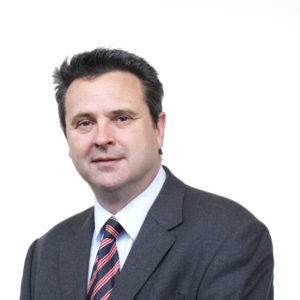
Taking questions in the Senedd, the Welsh Minister for Education and Skills, Huw Lewis, has announced that he wants to see a transformation of the way in which Religious Education is taught in Wales. Under the new proposals, and in a significant break from the current system, the subject would be renamed and incorporated into a new ‘Religion, Philosophy and Ethics’ syllabus. The British Humanist Association (BHA), who called for a broadening of the subject in its response to the Welsh curriculum review last year, has welcomed the announcement and looks forward to seeing further details as they are released.
In his independent review of the Welsh curriculum published earlier this year, Professor Graham Donaldson claimed that producing ‘ethical, informed citizens of Wales and the world’ should be one of the curriculum’s primary purposes, an assertion which the Education Minister echoed in his comments in the Senedd.
Responding to a question on the need to tackle extremism in schools, the Education Minister stated that schools in Wales needed to ‘rise to the challenge of community cohesion’, and the transformation of Religious Education (RE) was an important means of achieving this. Outlining his proposals, Mr Lewis stated that he wants to ‘rename the RE curriculum and transform it into a religion, philosophy and ethics element of the curriculum’, which would contain ‘an explicit commitment to allow children to ponder ideas around ethics and citizenship and what it means to be a citizen of a free country’.
Whilst further details are yet to be released, the proposed change represents a significant shift in the way RE is administered in Wales, and could signal a move towards the more thematic and values-led approach that the BHA has long campaigned for.
Reacting to the news, Chair of the Wales Humanists Ben Morris, said ‘Whilst it’s too early to tell what exactly a “Religion, Philosophy and Ethics” subject would look like, we certainly welcome the Welsh Government’s intent. Religious education that’s inclusive and focuses on shared values and common answers to difficult moral questions would be a powerful driver of community cohesion in Wales, so we hope the Government follows through on its intent in whatever changes it chooses to introduce.’
BHA Education Campaigner Jay Harman added, ‘In our response to Professor Donaldson’s review of the curriculum earlier this year, we wrote that “young people have the right to form their own opinions about the bigger questions in life and so should receive impartial education about religious and non-religious beliefs”. Philosophy and ethics have long been neglected in schools, and it’s tremendously encouraging to know that the Welsh Government is of exactly the same opinion. We’re glad that they have chosen to take these comments on board.
‘With so little detail available, we must avoid too much speculation about what these changes may mean in practical terms. What we don’t want to see, of course, is any kind of dilution in how thoroughly children are taught about the beliefs, religious or otherwise, of others, since such education plays a vital role in contributing to community cohesion and to literary, historical, and cultural education. But there is no indication that this will be the case, and the indication that the changes will further encourage pupils to personally grapple with important ethical and philosophical issues can only be welcomed.’
Notes
For further comment or information, please contact Jay Harman on 020 7324 3078 or jay@humanists.uk.
Read the BHA’s response to the call for evidence: https://humanists.uk/wp-content/uploads/Curriculum-for-Wales-call-for-evidence-response-from-the-British-Humanist-Association.pdf
Read the full outcome of Professor Donaldson’s independent review of the Welsh Curriculum: http://gov.wales/docs/dcells/publications/150225-successful-futures-en.pdf
Read more about the BHA’s campaigns work on RE: https://humanists.uk/campaigns/schools-and-education/school-curriculum/religious-education/
The British Humanist Association is the national charity working on behalf of non-religious people who seek to live ethical and fulfilling lives on the basis of reason and humanity. It promotes a secular state and equal treatment in law and policy of everyone, regardless of religion or belief.
